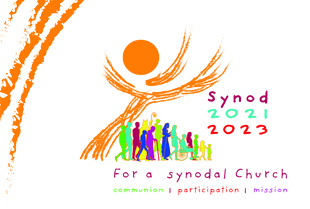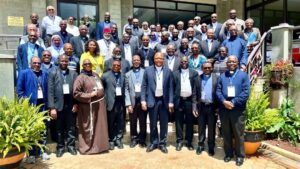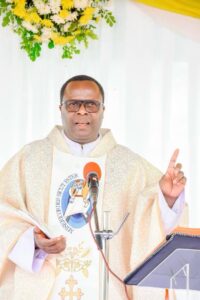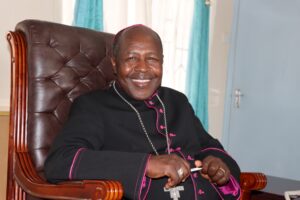VATICAN: Releases 2023 Synod Preparatory Document and Handbook: A Guide for Local Churches

Sr. Jecinter Antoinette Okoth, FSSA
Prior to the XVI Ordinary General Assembly of the Synod of Bishops on Synodality scheduled for October 2023, the General Secretariat of the Synod has released two working instruments: the Preparatory document and handbook (Vademecum) to be used by the local Churches as a guide towards the preparation of the Assembly.
The two documents for the first phase of the synodal journey released Tuesday September 7, aim at fostering “a broad consultation process in order to gather the wealth of the experiences of lived synodality, in its different articulations and facets, involving the Pastors and the Faithful of the local Churches at all the different levels.”
According to Vatican, Pope Francis invites the entire Church to reflect on the theme “For a Synodal Church: Communion, Participation and mission,” saying, “It is precisely this path of synodality which God expects of the Church of the third millennium.”
The theme calls for journeying together through mutual listening to the Holy Spirit at every level of the Church’s life oriented towards evangelization.
In creating the opportunity for listening and dialogue on the local level through this Synod, Pope Francis is calling the Church to “rediscover its deeply synodal nature. This rediscovery of the synodal roots of the Church will involve a process of humbly learning together how God is calling us to be as the Church in the third millennium.”
By journeying and reflecting together the document reads, “the Church will be able to learn through Her experience which processes can help Her to live in communion, to achieve participation, to open Herself to mission (hence) our “journeying together” is, in fact, what most effectively enacts and manifests the nature of the Church as the pilgrim and missionary People of God.”
Additionally, the journey “not only unites us more deeply with one another as the People of God but also sends us out to pursue our mission as a prophetic witness that embraces the entire family of humanity, together with our fellow Christian denominations and other faith traditions.”
The released preparatory document, “Reminds us of the context in which this Synod is taking place; the global pandemic, local and international conflicts, growing impact of climate change, migration, various forms of injustice, racism, violence, persecution, and increasing inequalities across humanity, to name a few,” reads part of the published document.
It continues, “In the Church, the context is also marked by the suffering experienced by minors and vulnerable people “due to sexual abuse, the abuse of power, and the abuse of conscience perpetrated by a significant number of clerics and consecrated persons.”
The preparatory document “will influence the release of the second draft of the working document to be published before June 2023” and act as “a tool to facilitate the first phase of listening to and consulting the People of God in the particular Churches” for the diocesan phase of the synod.
The handbook which accompanies the preparatory document, “offers practical support to the Diocesan contact persons designated by the diocesan bishops, to prepare and gather the People of God so that they can give voice to their experience in their local Church,” the Vatican document explains.
“Those who are responsible for organizing the process of listening and dialogue at the local level are encouraged to be sensitive to their own culture and context, resources, and constraints, and to discern how to implement this diocesan synodal phase, guided by their diocesan Bishop,” the document states.
“We encourage you to take useful ideas from this guide, but also to have your own local circumstances as your starting point. New and creative pathways may be found for working together among parishes and dioceses in order to bring this Synodal Process to fruition,” the document says adding, “This Synodal process needs not be seen as an overwhelming burden that competes with local pastoral care. Rather, it is an opportunity to foster the synodal and pastoral conversion of each local Church so as to be more fruitful in mission.”
Evidently, the two working instruments are complementary and need to be read in tandem with one another.
The purpose of the first phase of the synodal journey which is scheduled to take six months from October 2021 to April 2022 “is to foster a broad consultation process in order to gather the wealth of the experiences of lived synodality, in its different articulations and facets, involving the pastors and the faithful of the particular Churches at all the different levels,” the preparatory document says.


